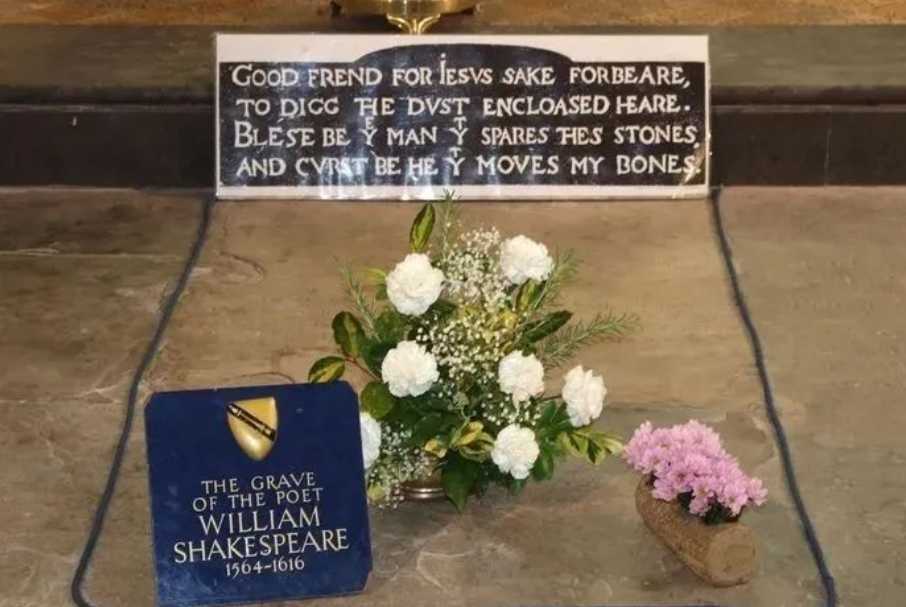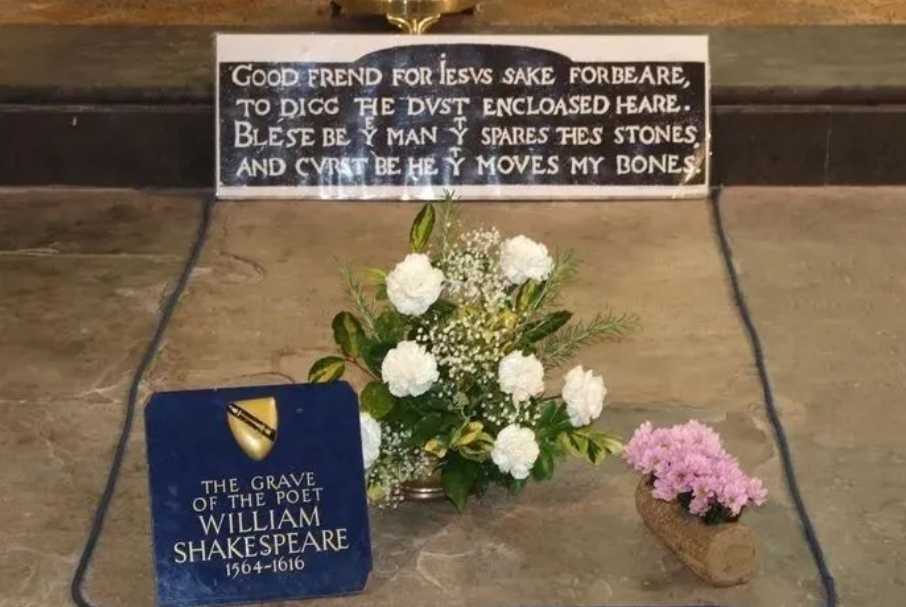William Shakespeare died on April 23, 1616, at the age of 52, and was buried in Holy Trinity Church in Stratford-upon-Avon. His epitaph, inscribed on his tombstone, serves as a stern warning to potential grave robbers:
"Good friend, for Jesus’ sake forbear,
To dig the dust enclosed here.
Blest be the man that spares these stones,
And curst be he that moves my bones."

Source: Images from the Internet, if there is any infringement, please contact the removal of
This verse reflects the playwright’s desire to rest undisturbed. In Shakespeare’s time, grave robbing was not uncommon—bodies were sometimes exhumed to make space for new burials or for medical study. His curse, blending a plea with a threat, was likely a deliberate attempt to protect his final resting place.
To this day, his tomb remains unopened, and the curse is often cited as a reason why his remains have never been disturbed. It adds a mysterious layer to the legacy of one of the world’s greatest writers, turning his epitaph into a lasting part of his story.









